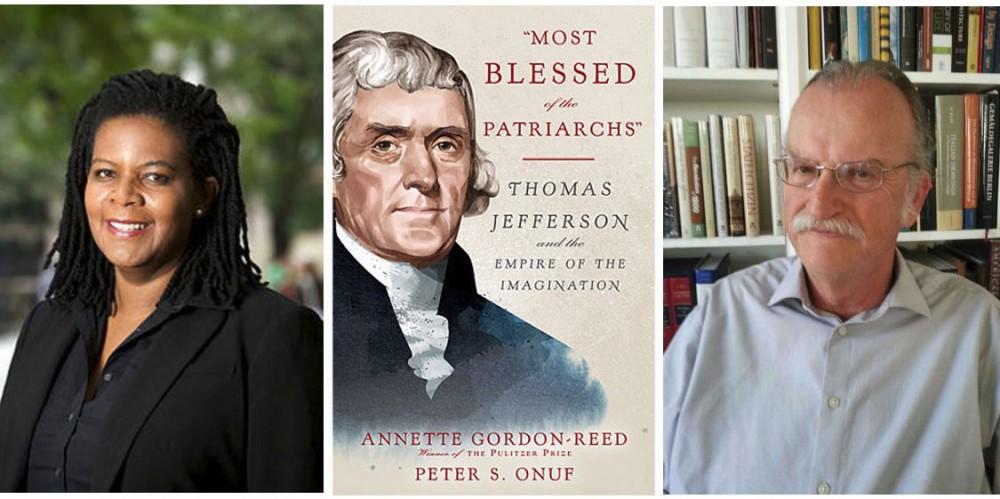Historian duo presents on Jefferson’s legacy, controversy

Courtesy / Princeton Public Library
Jan 28, 2019
On Thursday, Jan. 24, Grand Valley State University’s Hauenstein Center for Presidential Studies and the university’s Department of Inclusion and Equity hosted historians Annette Gordon-Reed and Peter S. Onuf, who presented an open discussion about racial issues in America — one of several events held by GVSU last week to honor the life of Rev. Martin Luther King. Jr.
Gordon-Reed and Onuf have been on the road together for two years sharing the story of moral perspectives on the issues of slavery in American history — including Thomas Jefferson’s.
Gordon-Reed is a Pulitzer-Prize winning historian and Professor of American Legal History at Harvard Law School. One of her publications details the relationship between Thomas Jefferson and one of his slaves, Sally Hemings.
Onuf is retired from his role as Thomas Jefferson Foundation Professor of History Emeritus at the University of Virginia, but is now able to share his research and perspective with students across the nation.
According to a GVSU press release, Jefferson, one of the nation’s founding fathers, was the most revered philosopher of the early republic’s Enlightenment ideals, but was also had racist views and owned slaves, making his mountaintop plantation of Charlottesville, Vir., a landscape of contradictions.
“This year, we went further back into the American past to look at the really complicated legacy of Thomas Jefferson,” said Hauenstein Center program manager Scott St. Louis. “This very articulate, blossomed person of the very early American Republic’s enlightenment and ideals — wanting liberty and equality and the pursuit of happiness for all people. But, on the other hand, he’s deeply involved in this country’s original sin, that of slavery.”
St. Louis said that DNA tests in recent years have strongly suggested that Jefferson has fathered children with Sally Hemings, one of his slaves.
“The speech looks at these contradictions, as it goes right to the heart of the American experience — since it was represented by one of our founding fathers — to understand what that can tell us about contemporary challenges regarding racial disparities in the United States today,” St. Louis said.
Onuf shares that their hope with delivering the speech was always to illuminate various perspectives surrounding the conversation of racism in American history in a non-controversial way.
“The title of our presentation sends the agenda for a free flowing conversation, that — we always hope — will spark new insights,” Onuf said. “Audience engagement is extremely important for us and Q&A sessions often yield the most exciting results.”
Gordon-Reed and Onuf published a book together in 2017 titled “Most Blessed of Patriarchs.” Their book stands as a provocative and absorbing character study of Jefferson, revealing him as a dynamic and sometimes complex, contradictory human being, according to a New York Times book review.
The duo’s speech reflects their book, challenging much of what people think they know about Jefferson, and through their research paints him as “equal parts sun and shadow.”
The historians present their speech at least 10 times per year, according to Onuf. “We keep our book fresh by using it as a springboard for discussing particular themes, such as moral problems in history and how we, as historians, can and should address them.”






















